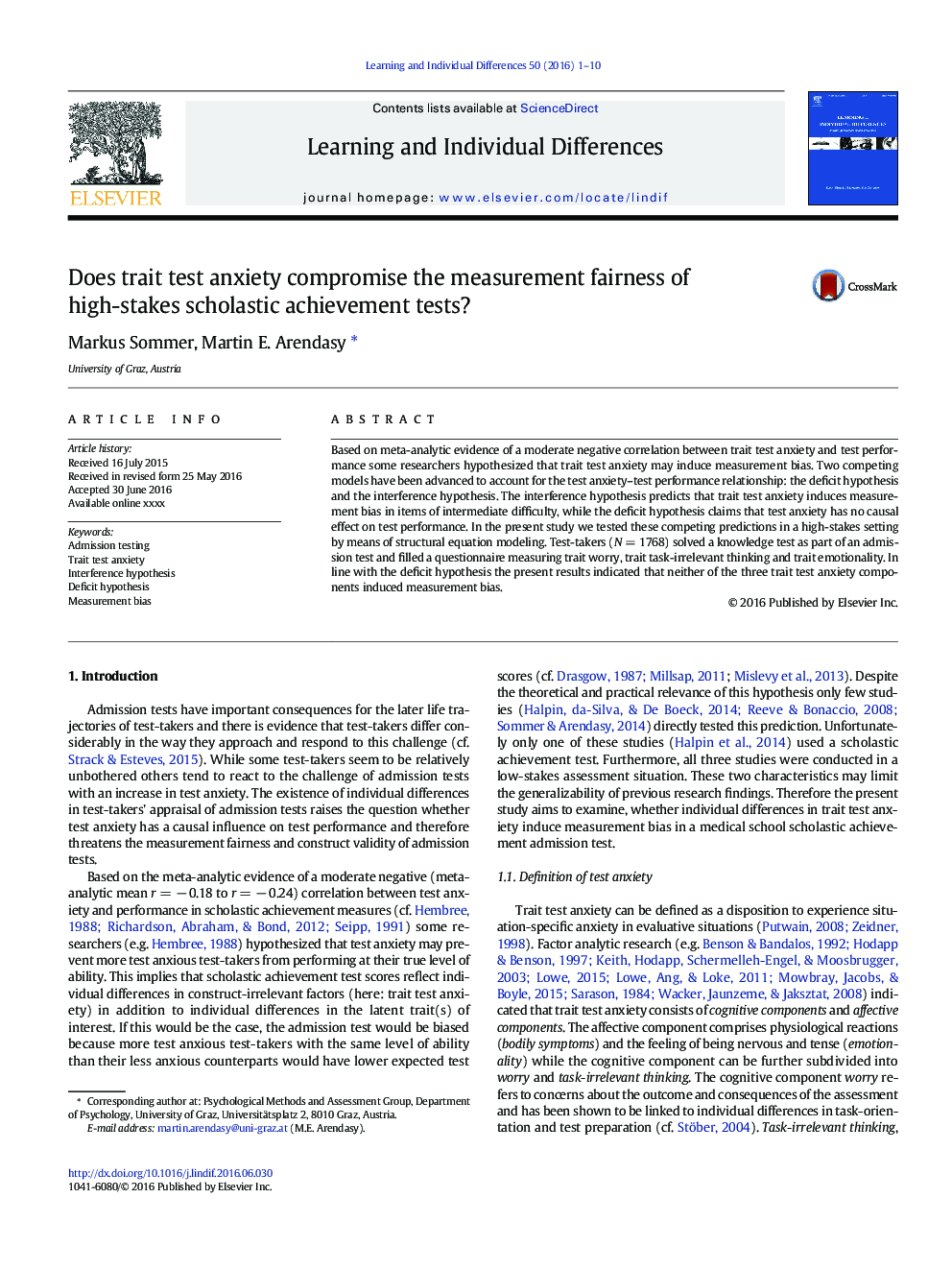| Article ID | Journal | Published Year | Pages | File Type |
|---|---|---|---|---|
| 364471 | Learning and Individual Differences | 2016 | 10 Pages |
•Predictions regarding measurement bias were deduced from competing test anxiety models.•Measurement bias due to trait test anxiety was examined using structural equation modeling.•Results indicated measurement invariance across trait test anxiety levels.•Trait worry was more closely linked to test performance than the other two components.•The results were most consistent with the current version of the deficit hypothesis.
Based on meta-analytic evidence of a moderate negative correlation between trait test anxiety and test performance some researchers hypothesized that trait test anxiety may induce measurement bias. Two competing models have been advanced to account for the test anxiety–test performance relationship: the deficit hypothesis and the interference hypothesis. The interference hypothesis predicts that trait test anxiety induces measurement bias in items of intermediate difficulty, while the deficit hypothesis claims that test anxiety has no causal effect on test performance. In the present study we tested these competing predictions in a high-stakes setting by means of structural equation modeling. Test-takers (N = 1768) solved a knowledge test as part of an admission test and filled a questionnaire measuring trait worry, trait task-irrelevant thinking and trait emotionality. In line with the deficit hypothesis the present results indicated that neither of the three trait test anxiety components induced measurement bias.
